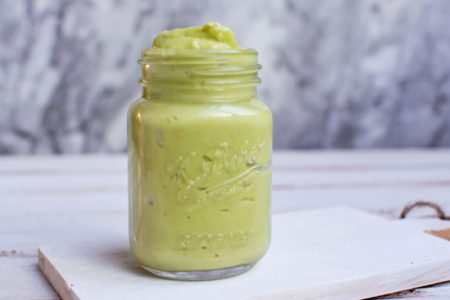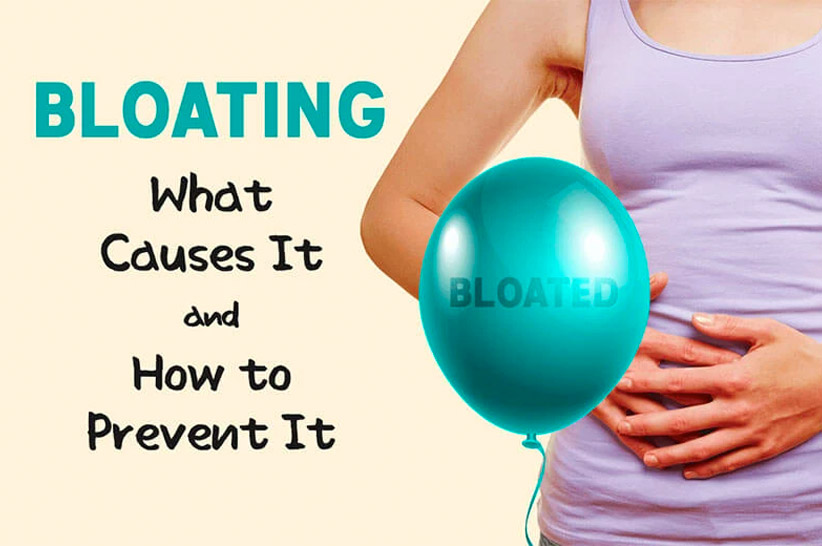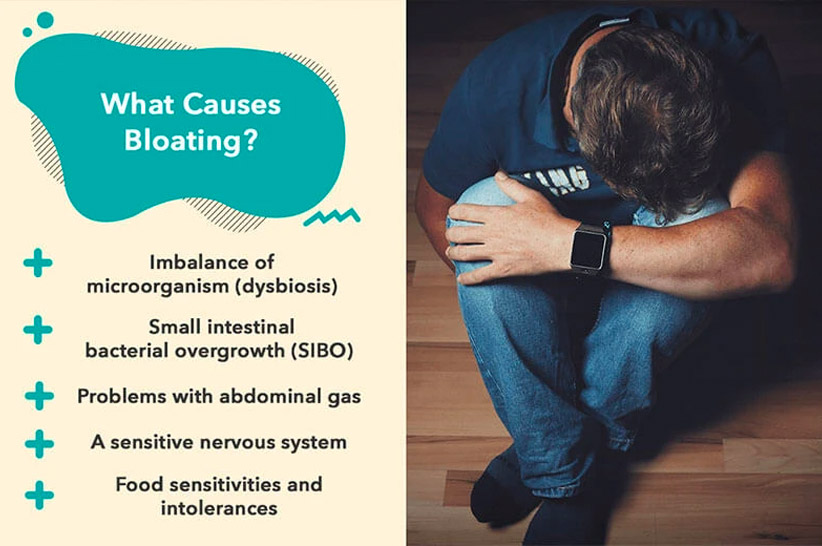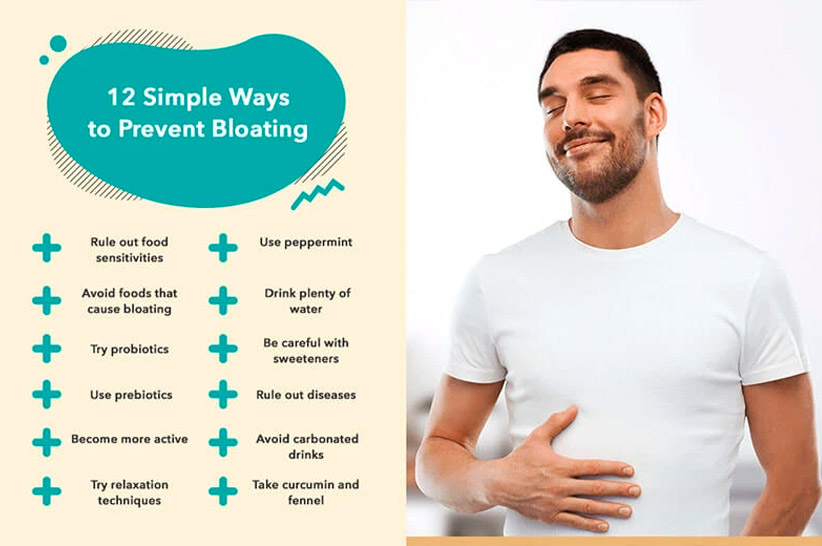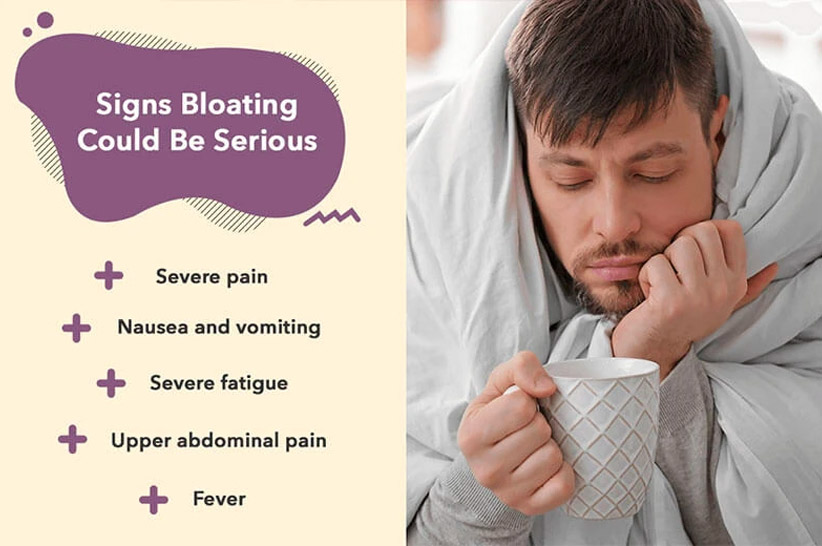Bloating is often described as a feeling of fullness and tightness in the abdomen. It’s a common gastrointestinal symptom that frequently happens together with distension. However, bloating also seems to mean different things to different people.
Bloating is often accompanied by discomfort and pain, so it is important to understand its causes, and how to effectively treat it. Learn more about bloating and different ways to prevent it below.
What Is Bloating?
The term “bloating” refers to the subjective sensation of swelling and tightness in the abdomen. Some also described bloating as a sense of gassiness. It is often confused with “distention,” which is visible swelling of the abdomen. Bloating should not be confused with burping and belching, which develop for completely different reasons than bloating.
Bloating is commonly experienced by people of all ages. However, it is more common in people with irritable bowel syndrome (IBS), other functional gastrointestinal disorders (FGIDs), as well as those with organic GI disorders 1. Other symptoms that can accompany bloating include burping, swallowing air, and flatulence.
What Causes Bloating?
Researchers aren’t really sure what causes stomach bloating, but many theories have emerged over the years. Below are some of the most common explanations for why bloating happens 1.
1. Imbalance of microorganism (dysbiosis)
Research shows that an imbalance of gut bacteria is likely behind some IBS symptoms, especially bloating 2. Many IBS patients report first developing symptoms after taking antibiotics, which are known to disrupt the delicate balance of gut bacteria. An imbalance affects a number of things: it affects how fiber is fermented in the large intestine, and it also affects how the GI tract digests carbs and protein. The result of these changes can be excessive gas, mild inflammation, impaired gut motility, and pain.
2. Small intestinal bacterial overgrowth (SIBO)
SIBO is a disorder where overgrowth of bacteria is seen in the small intestine. Some studies suggest SIBO may be a major reason behind IBS symptoms 1. There are many reasons a person may develop SIBO, such as poor gut motility, anatomical problems with the GI tract, and infections of the GI tract. Besides bloating, SIBO can cause nausea, vomiting, diarrhea, and weight loss.
3. Problems with abdominal gas
Bloating is often described as a feeling of gassiness, so it’s no wonder researchers proposed that too much gas in the intestines was the likely reason behind bloating. But as it turns out, most people have only about 100–200 cc of gas at any time, and these measures are the same in people with and without bloating [3]. So, evidence suggests that a greater volume of gas isn’t the main problem behind bloating, but rather impaired gas transit or distribution 1.
4. A sensitive nervous system
Sometimes people simply have heightened sensitivity to normal sensations in the abdomen. In these people, normal variations in gas in the intestines may cause sensations of bloating. Such hypersensitive can result from problems with the gut-brain axis (communication between the brain and nervous system in the gut) or from being hyper-aware of your digestion.
5. Food sensitivities and intolerances
People with IBS sometimes develop worse bloating and distention after increasing fiber intake 4. Other foods that can worsen symptoms in IBS include coffee, alcohol, fatty foods, dairy, wheat, and food additives. Poor absorption of carbohydrates called fermentable oligo-, di- and mono-saccharides and polyols (FODMAPs) can also cause bloating, constipation, and diarrhea 1.
12 Simple Ways to Prevent Bloating
Preventing bloating is easiest when you know what’s causing it in the first place. A medical professional may help get to the root causes of your bloating. To prevent bloating, consider trying out some of the following:
1. Rule out food sensitivities
Food intolerances and allergies are pretty common these days, with studies showing prevalence rates of around 10 % 5. You can find out if you’re allergic or intolerant to certain foods through an elimination diet or by getting an allergy test.
2. Avoid foods that cause bloating
Lactose, FODMAPs, cruciferous vegetables, and too much fiber can cause bloating in those with sensitivities and IBS. However, avoiding these foods is difficult and involves lots of planning and eliminating. Since you’ll be eliminating many foods, you may also risk developing nutrient deficiencies.
3. Try probiotics

When it comes to SIBO and bloating, the first-line treatment is antibiotics. However, probiotics can also help with this condition as well as functional disorders of the GI tract like IBS according to some studies 6, 7. Probiotics are cultured live bacteria and yeast that you can get from food like yogurt, kefir, sauerkraut, kimchi, miso, and other fermented foods.
4. Use prebiotics
Prebiotics are indigestible fibers that reach the colon where they are fermented by bacteria. In other words, prebiotics are food for gut bacteria. Sources of prebiotics are many low-carb, fibrous vegetables like onions, asparagus, mushrooms, but also fruits like berries.
5. Become more active
If you’re not very physically active, then possible causes of your bloating and distention could be constipation or poor gut motility. A study involving 8 patients, 7 of which had IBS, found that even mild physical activity improved bloating and distention 8.
6. Try relaxation techniques

Deep breathing, yoga, meditation, and even exercising can help lower your stress levels and improve your gut health. One study examined if meditation improved IBS symptoms after one year. Results showed that it also helps to reduce pain and bloating 9.
7. Use peppermint
Peppermint oil can be really helpful with indigestion and gas 10. Peppermint works by relaxing the intestinal muscles, which allows gas and stool to move quickly. However, if you’re prone to heartburn, you may want to skip peppermint for now.
8. Drink plenty of water
Eating fibrous vegetables and taking fiber supplements without adequate fluid intake is bound to leave you feeling constipated and bloated. That’s because fiber needs fluids to pass the GI tract freely, and soluble fiber needs water to bulk up.
9. Be careful with sweeteners

Sugar alcohols like sorbitol and xylitol were found to cause gastrointestinal symptoms like bloating in many people 11. The only exception to this seems to be erythritol, which has a completely different molecular structure to other sugar alcohols.
10. Rule out diseases
Diseases of the GI tract and other diseases can cause severe bloating. Examples of such diseases include Crohn’s disease, ulcerative colitis, and gastritis. Rarely is bloating caused by gynecological conditions like ovarian cysts, ovarian cancer, and endometriosis.
11. Avoid carbonated drinks
Carbonated water and other fizzy drinks can make bloating worse by introducing more gas into the GI tract. Consider drinking plain water instead. And if you have gastritis, indigestion, and IBS with diarrhea, consider alkaline water 12.
12. Take curcumin and fennel
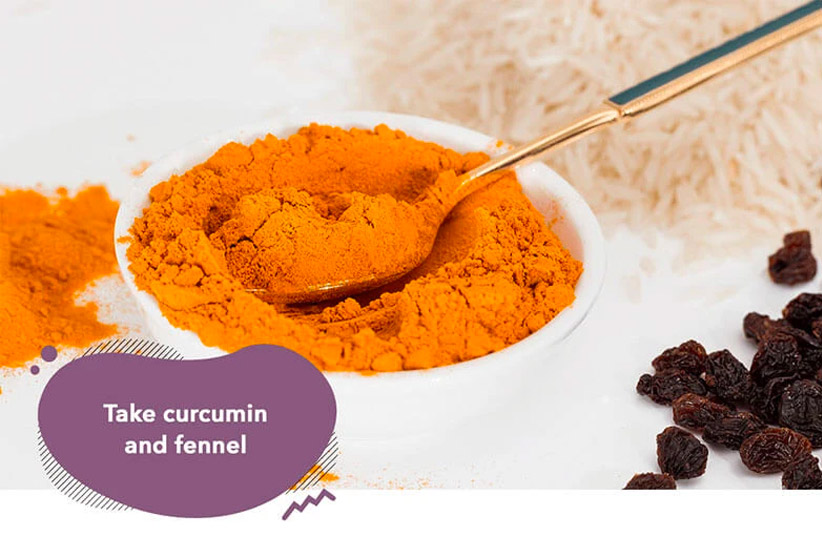
A 2016 study found that curcumin and fennel essential oils significantly improved symptoms in people with IBS 13badge]. While you could take these essential oils as well, it’s safest to consume them directly from the food, i.e. from turmeric, fennel bulbs, and fennel seeds.
Signs Bloating Could Be Serious
In most cases, bloating is harmless and nothing to worry about. In rare cases, however, it could indicate something serious and a visit to the doctor may be warranted. Here are some signs to look out for with bloating.
1. Severe pain
Severe pain with bloating could be a sign of bowel obstruction, which is a mechanical obstruction that can happen in the large or small intestine. It can result from hernias, twisted colons, appendicitis, tumors, endometriosis, and other serious conditions 14. It causes bloating, pain, nausea, and an inability to pass gas. Ovarian cancer can also cause persistent bloating with severe pain. This type of bloating causes visible swelling in the abdomen, which is a result of fluid build up due to cancer (ascites).
2. Nausea and vomiting
If bloating is accompanied by nausea and vomiting for more than a couple of days, it could be a sign of something serious. From mechanical obstruction to cancer and liver disease, there are many serious conditions that can lead to these symptoms. Food poisoning and a stomach bug can also be culprits, but these tend to resolve within a couple of days in mild cases and may require a visit to the ER if there’s the risk of severe dehydration.
3. Severe fatigue
Liver disease can cause chronic bloating and distension that tends to get worse over time and usually results in severe fatigue. Liver disease can result from hepatitis infections or chronic alcohol abuse. Besides bloating, advanced liver disease will result in jaundice, nausea, and malabsorption. Fatigue and bloating can also indicate advanced heart failure.
4. Upper abdominal pain
If you’re bloated and frequently experience sharp pain in the upper abdomen and that sometimes radiates to the back, it could be pancreatitis. Pancreatitis is an inflammatory disease of the pancreas, a gland that makes enzymes and hormones that help digest food. When the pancreas can’t do its job due to inflammation, your body will struggle to digest any food you eat, leading to bloating.
5. Fever
Fever is almost always a sign your body is fighting inflammation or infection. If you’ve been bloated for more than two days with fever, then do check with your doctor, who will likely order blood work to check your white blood cell count. Possible causes of bloating with fever include pelvic inflammatory disease (PID) and diverticulitis.
When Should You See a Doctor?
If you’re experiencing any of the above symptoms, then do see a doctor to rule out any serious condition. Otherwise, if you only experience occasional bloating that gets better with time, rest, exercise, passing gas, and after fasting, then your bloating is likely not a sign of anything serious. Most people who experience bloating have IBS or another functional GI disorder. These disorders are not serious, but they can be troublesome and disruptive. If you find that your symptoms are interfering with your functioning and well-being, then also consider speaking to your doctor.
Conclusion
Bloating refers to a subjective sensation of abdominal fullness. This sensation is more often than not accompanied by distention as well as mild pain and discomfort. While most people seem to think that bloating is a result of excess gas, studies show that it has more to do with gut motility and overall functioning of your GI system. Most cases of chronic and recurrent bloating are due to IBS and other functional GI disorders. But bloating can also result from more serious conditions, in which case a visit to the doctor is advised.
Takeaways
- Bloating is the sensation of feeling full and swollen in the abdomen. It is different from distention, which is visible swelling of the abdomen.
- Most cases of bloating are nothing serious, but bloating is still bothersome to most.
- You can prevent bloating with simple diet and lifestyle changes.
- If bloating is accompanied by symptoms of severe pain, weight loss, fever, and others, it’s a good idea to rule out dangerous conditions.





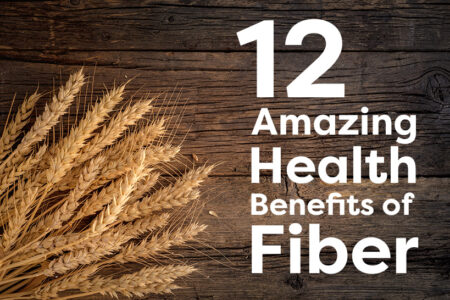


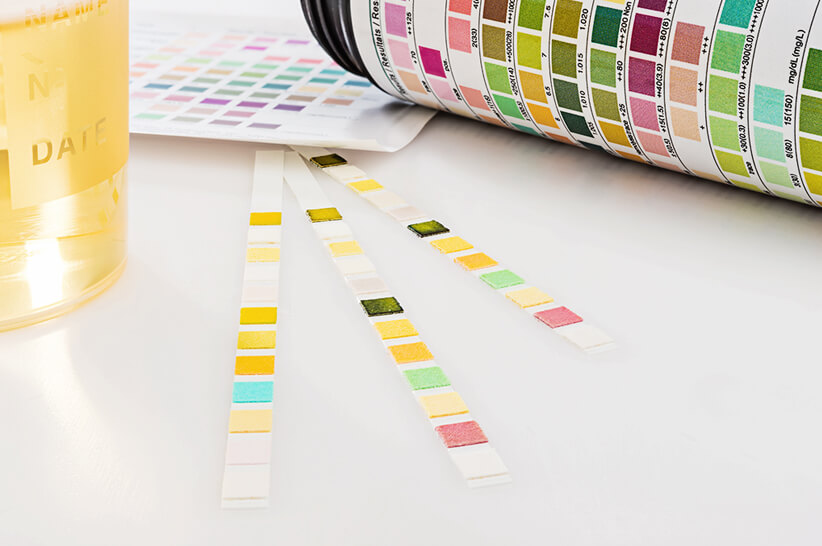

![Juicing for Weight Loss: Everything You Need to Know [Plus Recipes]](/wp-content/uploads/2019/08/Juicing-for-Weight-featured-image.jpg)



